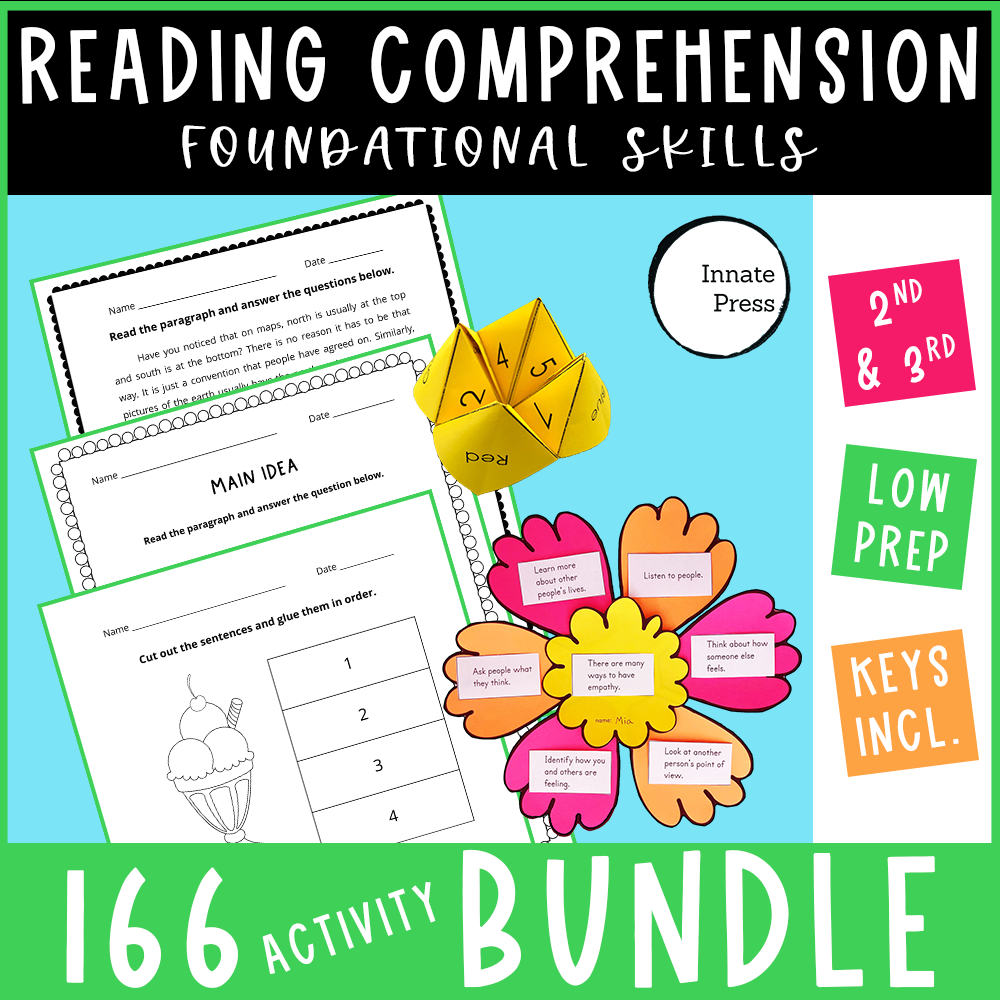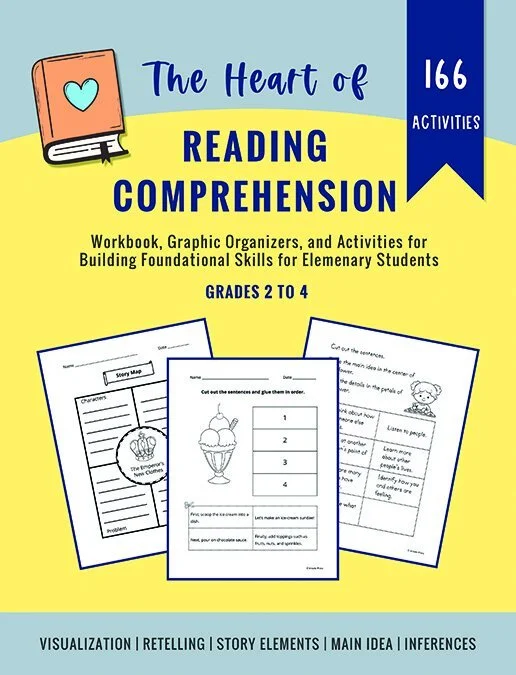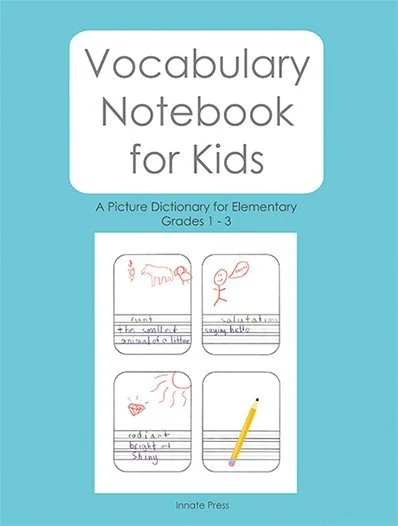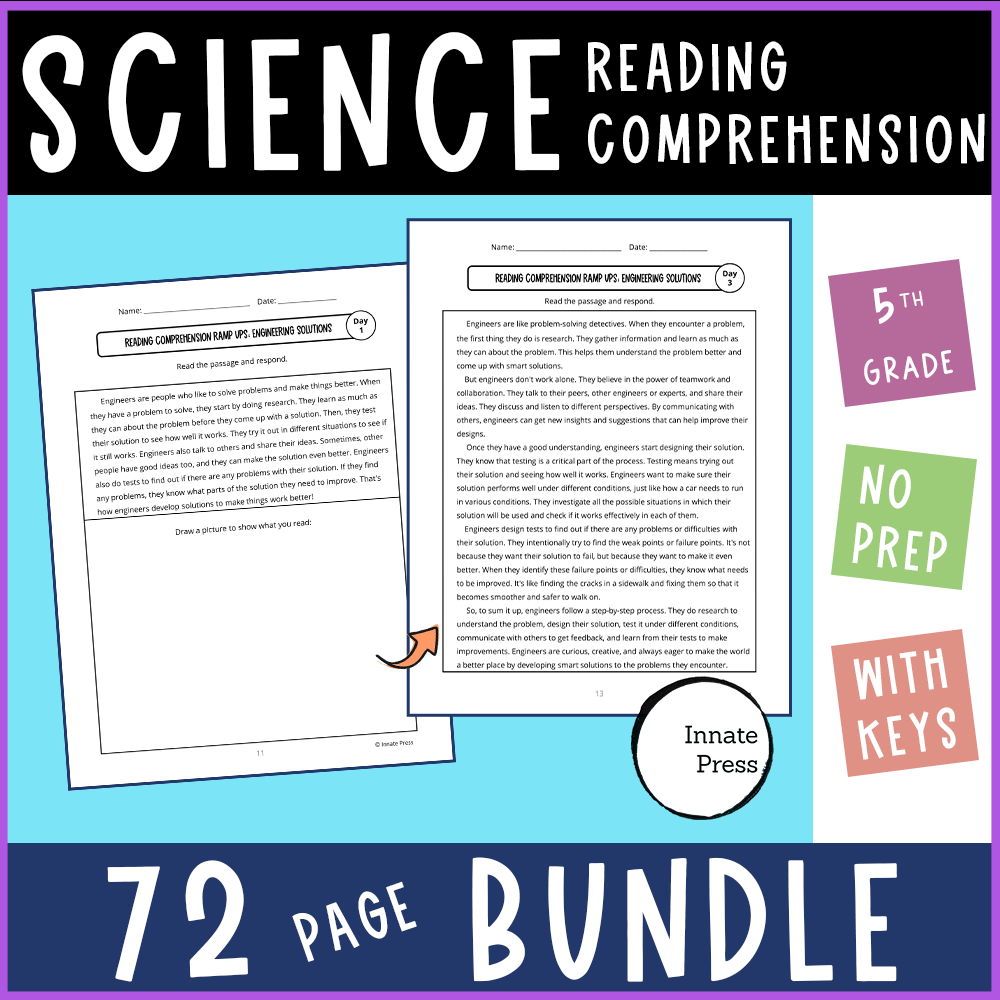Reading Comprehension Beyond Just Answering Questions
Some kids are really strong readers, but their reading comprehension lags a bit behind. This can be for several reasons. Sometimes students are struggling with reading fluently, so they are spending time and effort decoding the text rather than understanding the meaning behind what they are reading. Some children don’t visualize what they are reading, so it is more difficult to fully comprehend or remember. Often students simply lack the background knowledge and vocabulary needed to read grade-level text. In addition, many learning and attention difficulties can cause reading comprehension to be difficult for some students.
Unfortunately, many reading comprehension workbooks only provide passages and questions to answer. This is not enough to help students who really struggle with understanding fiction and non-fiction texts. Here are some additional skills and activities that can help your child improve their reading comprehension.
Visualization Practice
Some people naturally visualize what they are reading, like a little movie playing in their heads. Others need a lot of practice to develop this skill. You can start guiding your students by asking them to visualize a word at a time, then move on to a sentence, and eventually paragraphs and even full chapters. If you are working with a large class of students, you may ask them to draw what they read or even show them how to draw doodles as a way of taking notes.
Building Background Knowledge
Background knowledge is a huge piece of the reading comprehension puzzle! Studies have shown that increasing students’ background knowledge has a positive effect on their reading comprehension, even years down the line. This is a long-term effort that should continue over years of schooling. Here are some ideas for building background knowledge for kids:
Unit Studies - Unit studies are great for building up knowledge on a topic and also increasing subject-specific vocabulary (more on that below!)
Field Trips - Being immersed in the context of the subject can make a big difference in how much kids recall about the topic.
Hands-on Activities - Having objects that kids can touch, use, and talk about strengthens their understanding of the topic.
Cross-subject Connections - Students are able to build on their prior knowledge by connecting to things they already know.
Reading Simpler Text - Progressing from simpler to more complex text helps students build up their understanding without getting overwhelmed.
Strengthening Vocabulary
The best way to help children expand their vocabularies is to encourage them to read, read, and read some more! The more children read, the better their vocabularies become. Besides reading, here are a few things you can do to help your students learn more words:
Demonstrate how to figure out a new word meaning by the context. Next time you are reading aloud to your kids, stop a few times and ponder a new word. Show them how they can figure out a new word based on how it is being used in the text.
Speaking of reading aloud - this is a great way to help improve kids’ vocabularies! Read a book that is just above their grade level to expose them to new words. Audiobooks are also a great alternative.
Try a few vocabulary apps such as “Knowji” or “World’s Worst Pet”
Have a “Word of the Day” where you introduce a new word and start using it in conversation.
Play games such as Scrabble, Bananagrams, and crossword puzzles.
Start a vocabulary journal where your kids can collect interesting words from the books they read.
Watch documentaries, movies, and shows that are geared towards adults but still appropriate for children. They will naturally be exposed to words that aren’t in children’s programming.
Learning Text Structure
Having a strong understanding of text features can help kids understand what they are reading. Here are some things to pay attention to:
Fiction: plot, characters, setting, story progression
Non-fiction: main idea, details, headings, picture captions, author’s purpose
Summary and Retelling
Being able to summarize and answer factual questions are important skills that show student reading comprehension skills. You can start by reading something short, such as a short story, and asking your child to retell the story in her own words. Or, ask a few factual questions as you go. You can slowly move on to longer text. If your child does not know the answer, that is okay! Show him how to go back to the text and find the answers by looking for key words. With practice, these skills will slowly develop.
Inferences, Predictions, and Other Higher Order Thinking Skills
Once children are able to answer more basic questions, it is time to move on to some questions that require a little more critical thinking. Sometimes students struggle with questions and answers that may be more ambiguous and may not have just one correct answer. I have had success starting with asking students to predict what they think will happen next. Once they are able to make good predictions, I move on to asking inference questions. Inference questions often begin with “why” - such as “Why do you think the character said that?” or “Why are scientists studying this?” Discussions focused on higher order thinking skills can be very interesting for both teachers and students!
We Want to Help!
Don’t have time to do this on your own? We have some resources that can help! We’ve spent many hours creating materials with these concepts in mind. We hope these are helpful on your journey to helping your students improve their reading comprehension skills!
Reading Comprehension Foundational Skills
This bundle includes 166 pages of worksheets and printable activities for kids in 2nd and 3rd grades. This version is a digital download pdf format.
Reading Comprehension Workbook
This is the print version of the resource to above. It works as a workbook for one student or the pages can be photocopied for a classroom teacher.
Your students can collect new and interesting words with their very own notebook. Kids can write the new words, write the definitions, and draw a picture to help them remember. This is a paperback book.
Reading Comprehension Ramp Ups for 5th Grade Science
These reading passages gradually increase in difficulty over a week to help kids build background knowledge and prepare for 5th grade nonfiction reading passages. This is a digital download pdf resource.




